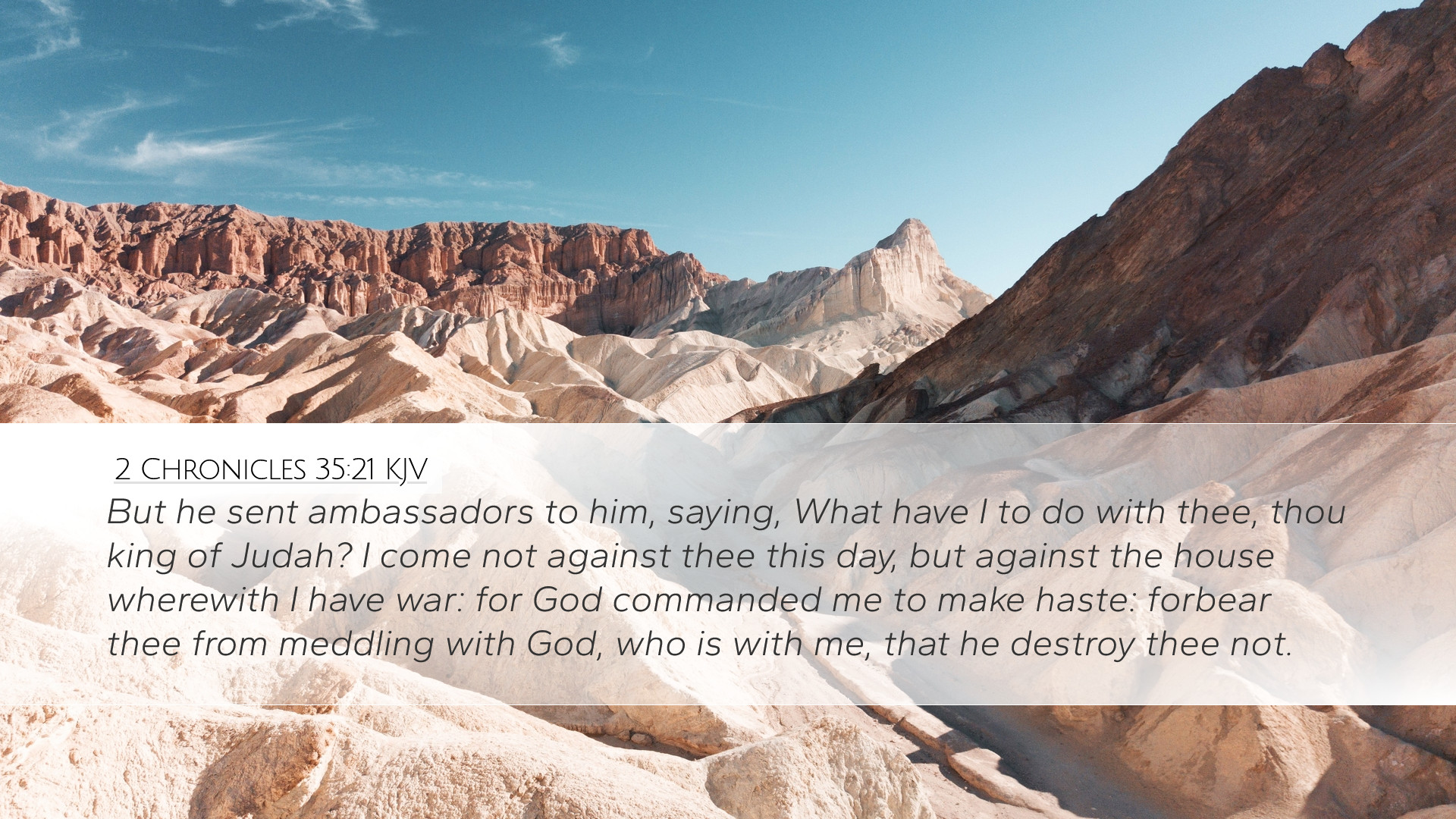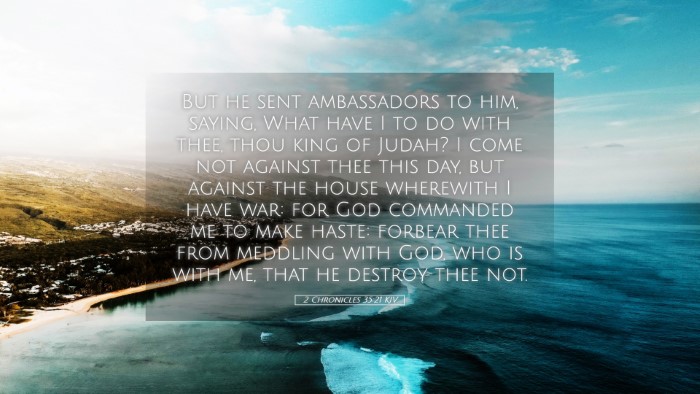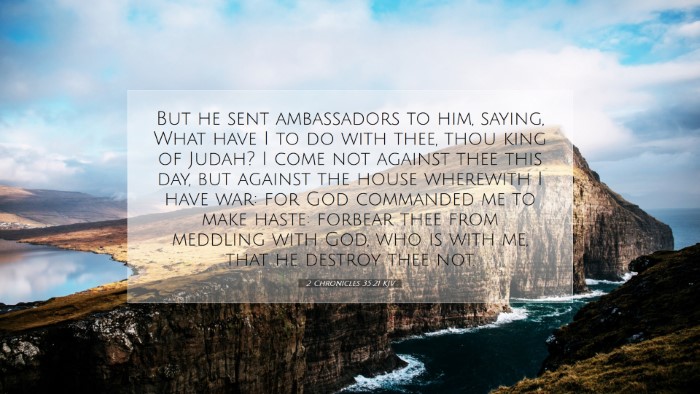Commentary on 2 Chronicles 35:21
Verse Context: 2 Chronicles 35:21 states: "But he sent ambassadors to him, saying, What have I to do with thee, thou king of Judah? I come not against thee this day, but against the house wherewith I have war: for God commanded me to make haste: forbear thee from meddling with God, who is with me, that he destroy thee not."
Introduction
This passage occurs during a critical juncture in the narrative of Israel's history, highlighting the complexities of leadership, divine mandate, and individual responsibility. The verse reflects the confrontation between King Josiah of Judah and Pharaoh Necho of Egypt. It emphasizes God's sovereignty in guiding nations and the importance of discerning divine will amidst what appears to be a trivial political conflict.
Historical Context
The events recounted in this chapter take place around 609 B.C., corresponding to significant political turmoil in the ancient Near East. Josiah, a reformed king, was engaged in a religious revival, whereas Necho was moving through Israel to confront the rising power of Babylon. The historical backdrop is crucial for understanding the theological implications of this confrontation.
Exegetical Insights
In this verse, we see that Necho refuses to engage with Josiah, indicating that his mission, as he claims, is divinely sanctioned. This narrative raises several themes worthy of exploration.
- Divine Command and Human Its Interpretation: Necho asserts he is on a divine mission, urging Josiah not to interfere. This reflects the complexity of understanding and responding to divine commands within the broader socio-political landscape.
- The Role of Prophecy: The lack of mention of a prophetic voice in the narrative raises questions about Josiah's lack of discernment regarding divine will, as his actions lead to his demise shortly thereafter.
- The Danger of Presumption: Josiah, despite his past righteousness, oversteps boundaries, perhaps motivated by zeal without proper understanding, highlighting that even the faithful can err in determining right action.
Theological Reflections
The exchange between Josiah and Necho is rich with theological implications:
- The Sovereignty of God: Necho's assertion that God has commanded him presents a challenge to readers regarding the sovereignty of God over nations and individual decisions. It prompts reflection on how God's plans might unfold through the actions of those who do not acknowledge Him.
- The Nature of Conflict: This passage illustrates that conflict often arises not only from personal ambitions but from competing claims of divine authority. It remains imperative for leaders to discern which cause aligns with God's purposes.
- Implications for Leaders: For pastors and leaders, this text serves as a reminder to seek divine wisdom before engaging in conflict. The consequences of misinterpretation or rash action can be dire.
Commentary by Respected Scholars
Matthew Henry: Henry notes that Josiah’s well-meaning intentions to engage Necho were misguided. He emphasizes the importance of waiting upon God for guidance, remarking that not all that appears righteous is divinely sanctioned.
Albert Barnes: Barnes highlights the role of Necho's proclamation as reflective of a broader theme regarding the relationship between divine commands and human action. He points out that the phrase "meddling with God" serves as a warning, not only to Josiah but to all who presume to act against God’s stated purposes.
Adam Clarke: Clarke provides critical insights into the moral implications of the confrontation. He explains that even kings must hear and discern divine messages, warning that spiritual vitality does not exempt one from the need for divine wisdom in actions that may seem politically innocuous.
Practical Applications
This verse encourages readers—especially leaders and theologians—to explore several practical applications:
- Discernment in Leadership: A call for leaders to continually seek God’s direction before making decisions that could impact their community or the world.
- Understanding Conflict: A reminder that conflict is often framed in terms of competing claims to divine endorsement, necessitating careful consideration and humility.
- Prayerful Consideration: The necessity of prayer and consultation of scripture in guiding actions that could lead to significant consequences is paramount.
Conclusion
2 Chronicles 35:21 encapsulates the tension between divine sovereignty and human action, illustrating that even the best intentions can lead to tragic outcomes when not aligned with God's will. For pastors, students, theologians, and scholars, this text serves as a poignant reminder to approach leadership and conflict with humility and a deep reliance on God’s wisdom.


